#1 Online Marketing Agency
(604)305-3040
2069- 88 West Pender Street, Vancouver
9:00 AM - 6:00 PM
|
Before sharing my story, I wanted to make a quick disclaimer. This, by all means, have nothing to do with how I judge or see stereotypes (good or bad) of the world… However, I just wanted to point out that analyzing the particulars of a specific region might help us understand some behaviors, and why not, stereotypes of particular areas of the world. Let's talk about Canada, for instance. This country is fascinating because it was basically founded on English and French customs and principles. When we study these two European countries, we realize they are so different from one another that they have a history of battling one another. And yet, Canada is, by many different standards, an inclusive society that cherishes differences! The French are mainly located in Quebec and New Brunswick. In contrast, the English are in all the other provinces in its majority. Go to Montreal, most of the people will speak French with you. At a restaurant, most of the menus are in French (except for some that are bilingual). Speak to a local and notice they use their hands while talking, just like French people! In Toronto, everything is in English, to the point that it feels like Quebec and Ontario are in two different countries. Would it make sense to establish a business in Quebec and put all the signages in English? Well, I am inclined to say no. Simply because your audience will be in, its majority, francophone! And if you make things harder to your client, marketing 101 teaches us that this is a no-no! Within the anglophone community, we also see a difference. Take Vancouver on the west coast. They speak the same language as Toronto - English! But when you get to know people in both cities, it feels like you are talking to two different beings from two different planets! Vancouverites love nature, to the point that you're likely to hear something about trees, nature, and CO2 emission (and real estate, always real estate) in any conversation! Torontonians' main priority has always been about work, work, and the Raptors winning the last NBA Title! How do we market the same product or service to those two different cities, even though they speak the same language? That's a marketing challenge, alright…but having this solved will be of great avail! In terms of online marketing strategy, this is gold! If we know what ticks each community, we can develop specific keyword analysis and personalize our SEO Services to the particular needs intrinsic to that specific region. Take, for example, a canoe reselling business that sells across Canada. Selling canoes in Vancouver might be as simple as putting up "Canoes for Sale" to boost traffic on Google! After all, they love canoeing there! The same canoe in Quebec could possibly be offered as "Canoë à Vendre", cuz well it's in French! Selling canoes in Toronto would require a more effective approach like - "Ways to disconnect from Stress" - because of the big city-no time vibe in Toronto. Having a canoe can be a great solution to decompress! My next example will touch on the cultural particulars of a country where we have many clients - Brazil (where people speak Portuguese, not Spanish!). Brazil is the biggest country in Latin America, with many big cities, spread thousands of miles apart. It's always interesting to see the different behavior patterns within each region. Take Sao Paulo and Rio de Janeiro, two of the country's biggest cities- apart from over 300 miles from each other. Sao Paulo was built over the sweat of industrial development and hardworking immigrants from Europe, Asia, and the Middle East. Rio was established as a former capital of the country, with bureaucrats and beautiful beaches bordering the Atlantic. Needless to say, because of the history of each city, their people are entirely different. Paulistanos (people from Sao Paulo) pride themselves on being hardworking and perceive the Cariocas (people from Rio de Janeiro) as the bon-vivant type and, to a certain extent, a bit lazy. Cariocas love the fact that the city has a more chill vibe, its people easygoing. They tend to see the Paulistas as no fun and uptight. When we try to build an online marketing strategy on the national level, catering to the specific regionalities of this continental Portuguese speaking country, what do we do? When building our SEO Strategies, understanding that the Paulistas are more urban-oriented will require us to crack our heads and develop keywords related to this attribute. The same thing applies to the samba-loving, beach-going Cariocas. Coming up with an SEO plan to sell to them will require a deeper learning of casual behavior! Crazy stuff happens when two big cities in the same region but that are so different from each other collide. Paulistas refer to cookies as bolacha. Bolacha for Cariocas is called biscoito. Stereotypes fly over our ears - Paulistas on Cariocas: "Yep, they don't work… They just want to have fun…only think about going to the beach, play soccer and samba all day"! Cariocas on Paulistas: "Those guys are uptight - they are jealous cuz we have beautiful beaches, and we can enjoy it whenever we want"! I have to go back to my disclaimer above! I'm not trying to judge those stereotypes, whether one may perceive them as derogatory or true. However, as a strategy focused Online Marketing Agency, I just believe that within those stereotypes lie great information that can be explored to build a very successful Marketing Strategy! Rival cities in the world: New York vs. Boston, Toronto vs. Vancouver, Johannesburg vs. Cape Town, Rio de Janeiro vs. Sao Paulo, Shanghai vs. Beijing. It is not all about sports anymore! Effective Marketing is about knowing rivalry attributes or regional characteristics to leverage information and provide easiness to our target market! Confession: I love at least one aspect of every city I have been on this planet. And I have a few things that I don't like about some either. But people…regardless of where they come from, there are cool dudes and dumb dudes everywhere! Let's just be happy and learn to understand each other! Leo Written by Leo Ang @ Ingols Digital Business! What is the best way to achieve your goals in your company? The answer is: To solve daily problems and provide value to your customer in the process. What does “solve daily problems” mean? It means what it is supposed to mean. As a business owner, you stumble upon an issue that needs to be taken care of. You tackle it and make it disappear as fast as you can. If you do it consistently, you create a habit. That habit brings your clients results, and they will return for more. Big Example: Say you run a small restaurant. This restaurant has 16 tables, and it is free seating. What this means is that the moment a patron comes in, they may choose where they want to sit. Now, this is what it would look like if customers were allowed to select their seats: A patron comes in, and seeing decides to sit on the opposite side of your staff, right at the end of the restaurant. Another customer comes in and sits on the opposite side of the first customer. And that repeats for two more parties that enter the restaurant. What would be the consequence of this free seating policy? If you are working with a tight crew, they have a higher chance of getting tired faster. They would also be running on the floor randomly (based on the order of the clients’ arrival), and when they put a ticket to the kitchen, they have a higher chance of missing it. The kitchen runs based on the flow of orders. If they come in on a random orderly fashion, you will experience customers getting their food later, or maybe a table getting their food partially, etc. Is this a problem? I believe it is. How to solve it? Look at the map below. If we can organize the tables in sections, and we place a greeter or host in the entrance of the restaurant to escort the patrons to their table, we can organize the space of the floor and thus the inflow of orders and food. How could we fix this issue? On the map, we divided the same number of tables in 3 sections. When the first customer comes in, we will direct him to table 1. When the second customer comes in, we’ll place them on table 2, the third to table 3, and so forth. We will only allow a customer to go to table 7 if the original six are full. So when you deal with the seating issue, you can focus all your waiters’ efforts in one area of the restaurant. Your service will be faster, food will arrive on time, and you will help the kitchen by being organized. In this case, by organizing the flow of customers, you can provide better service to them! That is efficiency in solving problems. In our company, we cater mostly to small businesses, which means deal directly we the business owners, talking strategy, and discussing what to do and not. What we notice in dealing with them is that if we can give them more than they are expecting and get the results they want, their satisfaction improves, and they will gladly refer you to new clients. What does this mean? Usually, this is how you hire an online marketing agency: give them the scope of the project, they will provide a detailed blueprint of what they can do, and they can’t do, you agree with the terms and start working together. It’s not uncommon that unpredicted issues in the scope determined by agency surfaces and needs to be dealt with to achieve the results you had in mind when you hired that very agency. Most of the agencies (this is also from my personal experience as a client) will say: “I can’t do this” or “That’s not within our scope” or “We need to hire someone else to do it.” Now bear with me, I am not talking about new software implementation, or something massive as adding a new social media in a super-specific language like Mandarin, for instance. I am talking about…” hey, something interesting just happened in the neighborhood, can we talk about it on our social media within the hour? Can you please create a post about it?” These types of things. Those agencies often neglect them because they were not in the scope, but as I see it, this agency is not solving the clients’ problem. I have learned over the past years as a business owner that my best service partners are the ones that were doing extra without me requesting or knowing it. And that is fantastic because I never feel like IO have to bug these partners for little things, which puts a strain on the working relationship. I don’t even bother to bug those partners, which I would if results were not happening, and I noticed they were not proactive in their role. Of course, there’s a gray area. It’s not fair to online marketing agencies to expect their work to deviate so drastically from what they planned just so the customer can get a load of free services. However, it’s also not smart to see a strategy not going through when you know that if you add a few things or two to your daily activities, it can improve the results of your work. As SEO experts, we learned how to reverse engineer websites, data, and social media channels so we can funnel the traffic to our client’s business online. Looking at the big picture, it makes sense to reverse engineer the approach on Customer Service! How we cater service practices should be “everything in your power to bring those customers to the client”! Examples: Work on Sundays, overnight, add that paid feature to your client, write content when your client can’t give you, add that extra post on his social media channel, he is not giving you the material to finish your assignment? Figure out a way to help you in this regard, don’t just wait! MAKE THINGS HAPPEN! For your client and the sake of a prosper partnership! In the long term, you are continually solving their problems, you are generating value to their business, and you become an essential partner for their success! It pays off!!! Leo
Written by Leo Ang @ Ingols Digital Business! Partner at Ingols Digital @ingolsdigital and Ingols Imports. 5/7/2020 HOW-TO GURUS AND FLOWERSGurus - beware of them. I don't know about you…but with re-targeting software popping up everywhere I often find thousands of business gurus, mentors, and/or coaches that are willing to teach me so many things online, especially after I bump into an SEO service package or an online marketing company that I am researching about. Those gurus mesmerize me with promises of wonderland, and I often get caught on their net of get-rich-quick-dreams but the main question I make myself is: If this guy is so good at this, why is he teaching other people instead of implementing his ideas himself? I've compiled a shortlist with the "make-extra-money" DIY quick-solution-promises I've seen lately. Reader advise - it always starts with "how-to".  Need a guru? Need a guru? I've compiled a shortlist with the "make-extra-money" DIY quick-solution-promises I've seen lately. Reader advise - it always starts with "how-to".
The list goes on. Just google "how to" and let the predictor show you what is trending right now. Regrettably, most of these courses promise you amazing results but cover topics in such a shallow way. From what I gathered, the guru always promises you'll realize your dream by following a few simple steps. However, one must understand that the path to financial freedom or business success does require many other intangibles that we are not able to get by just reading the ebook, watching the masterclass, or taking the course. If doing business was so simple (not saying easy, but simple), all of the graduates from Harvard Business School would be killing it now! And that's not true! When I talk about intangibles, I mean discipline, focus, courage, vision, creativity…things that set extraordinary business minds apart from the folks that are just trying to score extra bucks. By any means, I am not a successful business owner yet if I compare myself to guys like Forbes Billionaires 2020, or even the guy running the printing shop for 25 years down the street. However, my partner and I did work our butts off for the last eight years, building something from scratch and having the revenue stream that provides us with a great, comfortable life! Our path is no different than most small-medium business owners. We struggled, we made mistakes, we got scared, we learned, we made some deals and lost a few… and those experiences built those intangibles I am referring to. Being a business owner (not dissing any quick-fix gurus here) takes courage because you are essentially putting your money (or someone else's) into an idea that you are betting will work because you believe you can deliver on it! In other words, you have something to lose. The road to being stable from that point on isn't at all linear. Maybe your pricing strategy is incorrect; maybe customers don't like your face, perhaps you don't know anything about marketing. But to survive, you learn from those little hiccups. If you do survive the mistakes you made, that means you are now smarter and stronger, just like an evolved Pokémon. Take this family-run Toronto flower business that has been open since the 80s as an example. Look at their business today, and you'll be amazed. They are located in an exclusive neighborhood, cater to large corporate accounts, and their average ticket sales are $300 and above. Here's how they started. They moved from Taiwan in the late 70s, with three kids on their back. Not having a formal education in Canada, they decided to put their entire savings into a fruit stand in a busy street north of Toronto. The father would be in charge of bringing the goods, the mother would help running sales, and the kids would study in the back. There were no gurus back then. ;) Their main products were perishables (fruits and vegetables), and they laugh about it until this day because the Dad didn't know a thing about basic logistics to run the stand. By basic logistics, I don't mean the fancy FIFO concepts we learn in business school. I'm talking about "you bring fresh fruit to the display, make sure you put the old ones to the front so customers can grab the older ones. If you mix the old and the new batch, one will rotten, and everything will be spoiled". The Dad didn't do this properly, so the business often saw the loss of their products. Being in a low-margin business sucks because you need to control your costs like a maniac to break even. To no one's surprise, their business went bust. They lost almost everything. While they were caught trying to find whose fault it was that the apples, oranges, and bananas were not carefully taken care of, they also realized that another product people were buying in their small shop was flowers. They remembered that when the Mom wrapped them out to give to the customer, she would do it in such an attractive way, mixing leaves, cellophane paper, ribbons… that they loved them! Eureka! That moment was gold…No other flower shops in their area would do this back in the day. So they decided to focus on selling flowers and decorate them with ornaments on the side. Now they could not only charge their customers for the products but also add value with their arrangements good taste, which gave them some margin to play around with (remember, decorating abilities is a service). Business boomed! Still no gurus. With the lessons learned from the fruit example, the Dad knew he needed to get flowers and replenish them fast as they were also perishable. The Mom was amazing at making the arrangements…and on top of that, the service was spectacular and friendly! Customers would continuously go back for more! Today, Flower Plus is one of the oldest and most respected flower stores in Toronto. Celebrities, business people, and designers all go there to buy the best arrangements they can find in the city for their homes and loved ones! From rotten oranges to a successful business, lessons were learned continuously! In essence, most of the how-to guides "gurus" are pushing online are shallow and do not cover the heart. Not saying they are useless or that you won't be able to do anything with them…but running a successful business should always be about improving those intangibles and generating value to customers. Developing a scheme that is good for you and your customers with discipline, and hard work will, eventually, get you your six, seven, or eight-figure income! Leo Written by Leo Ang @ Ingols Digital Business Savvy in Chief! Partner at Ingols Digital @ingolsdigital and Ingols Imports. Social media strategy is one of the main concerns conveyed by our prospective clients when they approach our digital marketing agency. Part of these prospects is new small businesses that have never had to deal with Facebook, Instagram, Pinterest as a business tool. However, many of those prospects are established small companies that already have social media accounts and are facing challenges in that area. Today we'll explore some of the social media strategy issues that established small businesses usually face gathered from our own experience in helping our clients. Understanding your social media issues The first thing we do when evaluating a prospective client's online presence is to diagnose both the website's performance (with a big focus on SEO performance) and their social channel's statistics (with a focus on targeted engagement). Amongst the many social media strategy issues we see, some of them are pretty common across the board. 1) Lacking engagement Some of our clients have a good following, but their content isn't breaking the engagement barrier. Social Media can be a tough task if you don't have a good strategy - producing content is one thing, but engaging your audience is an entirely different game. That's especially tough for small businesses that may have limited resources. Consider: Do you know who your audience is and the things they want to consume? Is the content you're sharing attractive to your customer avatar? Are you leveraging each social media platform to garner maximum engagement? Do: Design your client's avatar. There are many free tools to do that, and one of our favorites is Hubspot's Make My Persona tool. Once that's done, listen to them and learn to speak their language so you can find ways to communicate with your audience in each one of your social channels. 2) Struggling to convert The audience in each one of the social channels you use will probably expect different things from the content they consume. Ultimately your content should be driving conversion, but I dare say most of it is seen as entertainment. Consider: Is your content seen as entertainment, or is it driving conversions? Do you have a clear communication strategy for each social media channel? Do: Build a content funnel that matches your client funnel and develop content specific to each level. Below we share an example of a general content funnel. 3. Content Generation Social media content generation can be a daunting task if you don't have the right tools and resources available. One of the most significant challenges faced by social media managers is the fact that there's never enough time to post as much content as needed, with the right hashtags, at the right times, and in the proper channels. Most of them also lack competitor analysis in their strategies. Consider: Do you have the right tools (systems and apps) and resources (team) in place? Do you have the right information (competitor analysis) available? Do: There are many social media management tools in a wide range of prices. Find one that fits your budget (there are several free tools) until your business needs become more complex. At the same time, doing competitor analysis will be crucial in designing your strategy and creating consistent and quality content. Tools that help you find keywords used in your industry and by your competitors are game-changers. 4. Managing crisis Small businesses rely heavily on prospective and actual client reviews, but what happens when someone leaves a stinky comment or a bad review on your page? A person wearing all the hats might not know how to generate content that won't trigger an adverse reaction from your brand's audience or manage those reactions. Consider: Do you have a social listening strategy in place? Creating a crisis management plan for protecting your business' reputation. Do: Listen to the conversation that surrounds your industry, your businesses, and your brand. Social media management platforms like Hootsuite or Sprout Social allow you to track keyword mentions, hashtags, and commentary from several social channels. Have a basic crisis management action plan that determines who, what and when to respond when an issue comes up. Takeaway Never stop monitoring your social media channels as this will not only let you gain insight from people's reactions to your business/brand but also your competitors. It'll also allow you to quickly identify a crisis and act on it effectively, even spinning it back in your favor. Effectively managing different social media channels can be a taxing task for small businesses. Even with the wide range of tools in the market that can help with several of these tasks, it can still be pretty expensive and time-consuming. Many of our clients that have tried managing all of their social channels by themselves have reported that they seldom had enough time and energy to work it, despite spending serious cash on apps every month. At Ingols Digital, we have a suite of apps and systems in place to support our clients with their social media needs so they can focus on their business. We have a team of specialists that help small businesses build their online reputation, increase brand awareness, and perfect Google exposure locally, regionally, or nationally. ;) |
Ingols Digital
Our Blog is constantly updated by Dani or Leo. We talk about ways to improve small businesses marketing using tools related to Technology, Websites and Social Media. Yes, we cover some SEO as well! ArchivesCategories
All
|
|
- SEO Services for Accountants
- SEO Services for Florists - SEO Services for Lawyers - SEO Services for Photographers - SEO Services for Travel Agents - SEO Services for Small Business - SEO Services for Restaurants - SEO Services for Contractors |
- Web Design Abbostford
- Web Design Calgary - Web Design Edmonton - Web Design Vancouver - Web Design Montreal - Web Design Ottawa - Web Design Toronto - Web Design Victoria |







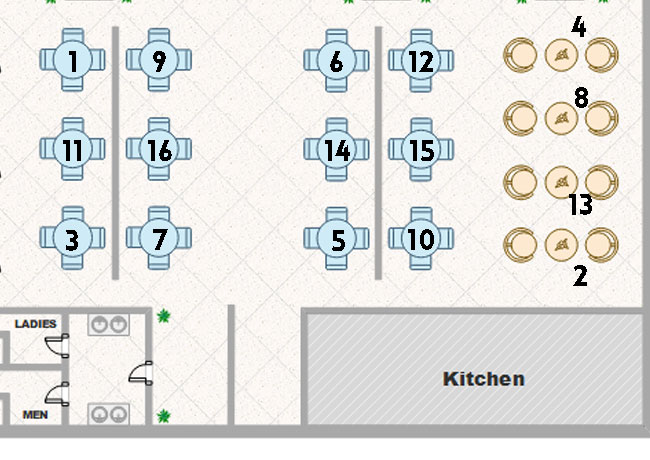
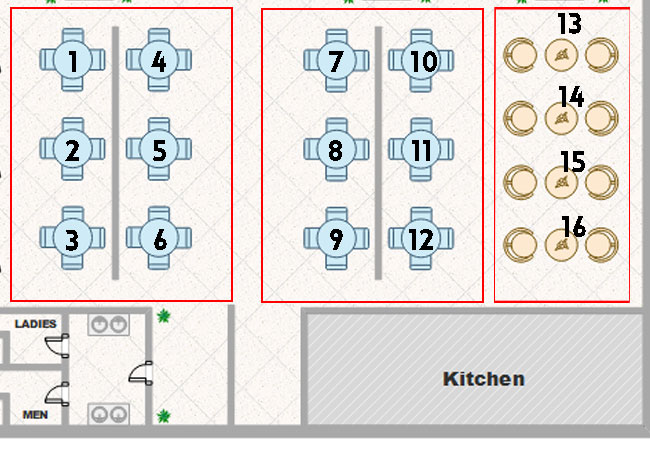





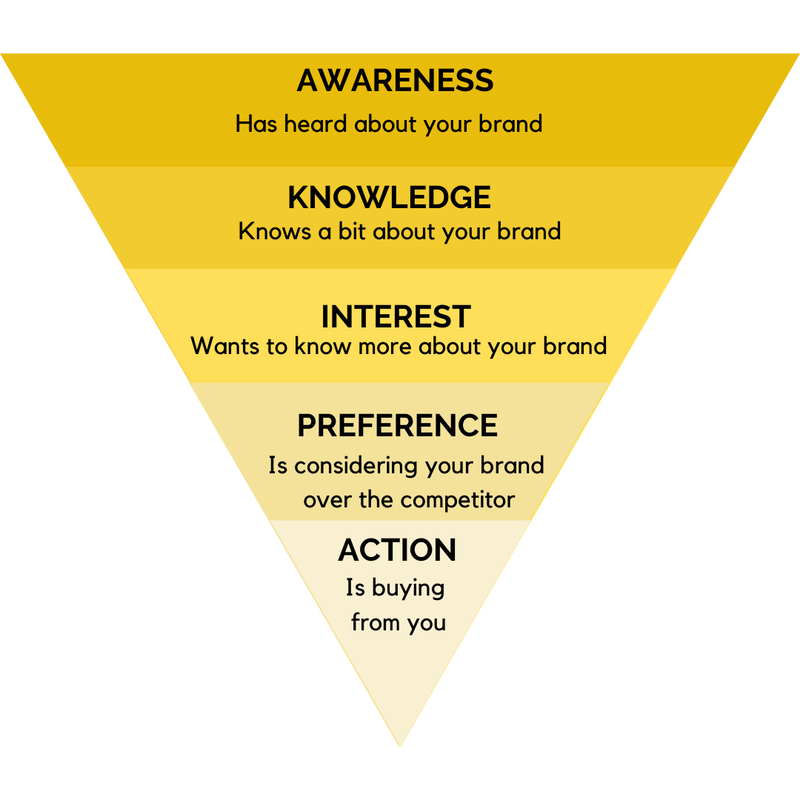
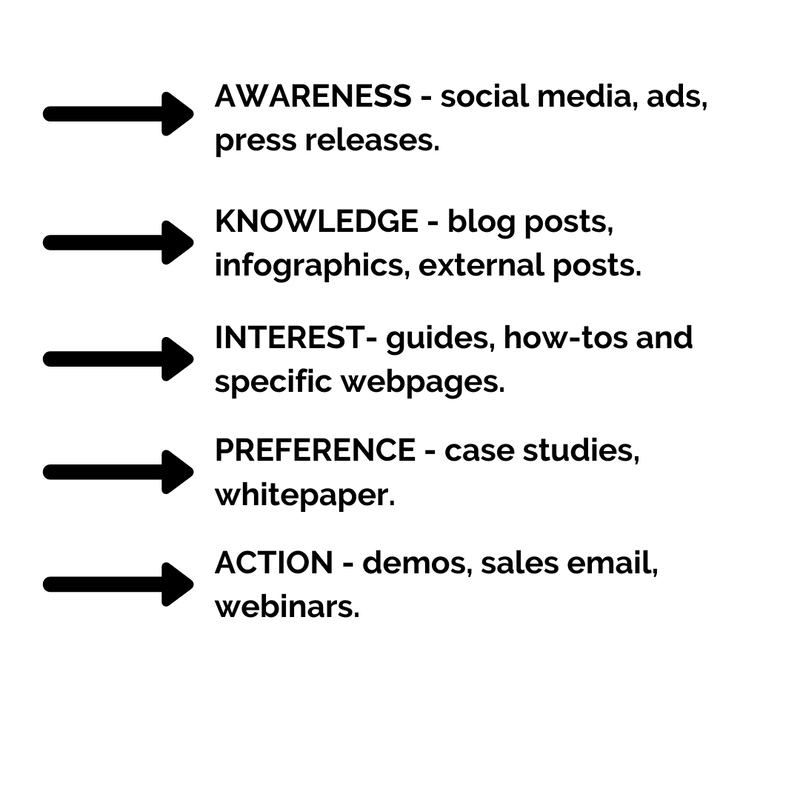

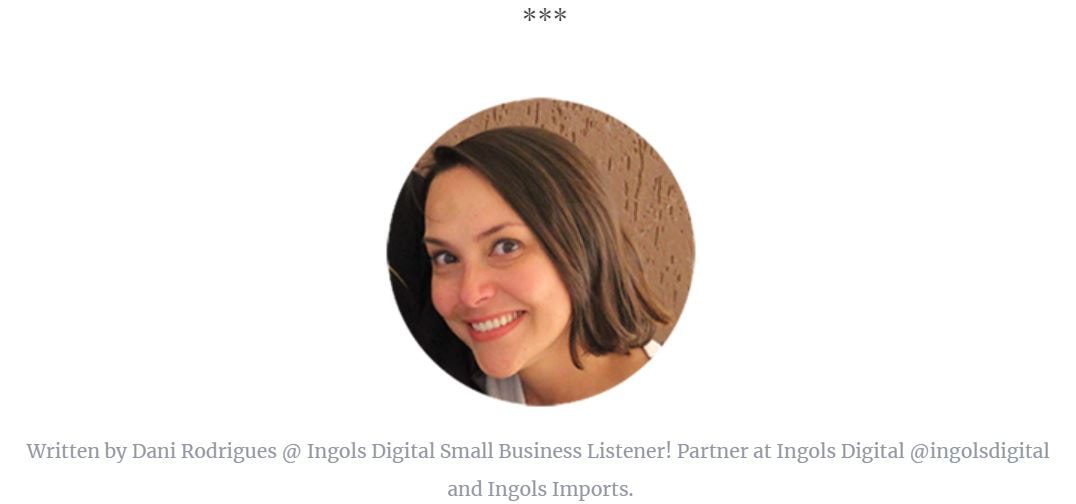
 RSS Feed
RSS Feed
5/18/2020
2 Comments